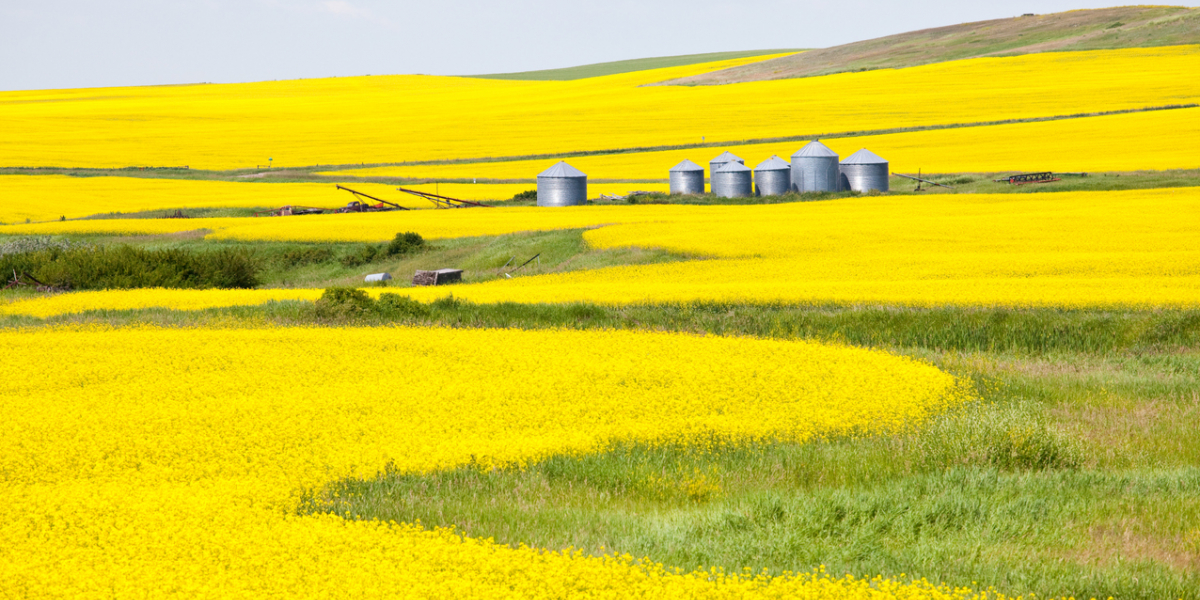
Smart Prosperity Institute is proud to be part of uOttawa’s Institute of the Environment which offers graduate courses in environmental sustainability. As part of our mandate to support and promote the next generation of researchers, we invited this year’s cohort of Master of Environmental Sustainability students to share their research projects.
This blog forms the second of two Graduate Student Spotlights for 2023. In this installment, we feature upcoming research by Sonia Vinogradova, Cassandra DeRuyter-Adams, and Victor Ufot.
Agri-food companies provide the world’s literal bread and butter. The agri-food industry’s reliance on the natural environment means it must value the health of surrounding ecosystems and consider its impact on the environment. Considering this close relationship, agriculture companies will need to invest resources into understanding how to promote sustainability through greater environmental disclosure to remain successful.
This research will examine how large companies in the agri-food sector cope with the growing pressure to perform sustainably and how this sustainable performance information is disclosed to stakeholders. By focusing on Canadian canola companies, this research will contribute to global research on country and industry-specific disclosure trends. Canola has been chosen for the fact that Canada is the world’s leading exporter of canola, according to the Food and Agriculture Organization.
My research asks “Are Canadian canola companies improving the depth of their environmental disclosure in annual reports over time?” I am interested in using environmental disclosures from annual reports to study the change in attitudes towards the threat of climate change impacts on a company’s industry and/or the company itself. This project will add to the discussion of the form, content, and evolution of sustainability disclosures and ideally support policymakers in defining sustainability indicators or reporting requirements for sectors such as the agri-food sector. Finally, this research provides industry insight into sustainability performance using nonfinancial sustainability reports.
While food system sustainability has recently received renewed political interest, Canada’s need for a coordinated, equitable, and environmentally sustainable food system is anything but a fad, as many vulnerable groups (and even the United Nation’s Special Rapporteur on the right to food) can attest. It is crucial that in the development of policies like the Food Policy for Canada, food systems are designed to provide adequate, culturally appropriate, quality food for all people and do so in a just and environmentally sustainable way.
My research explores to what extent the design of major recent federal initiatives within the Food Policy for Canada support a sustainable Canadian food system aligned with agroecological principles. Identifying strengths and vulnerabilities in the current policy proposals can contribute positively to the policy cycle, provide alternative perspectives for government decision-makers, improve the sustainability of the legislation, and hold the government accountable to political promises and legislative outcomes.
The environmental issue and concern that my research explores is heavy metal pollution in the Arctic. Heavy metals such as mercury and lead can accumulate in the food chain, posing significant health risks to Arctic communities and ecosystems. The Arctic is particularly vulnerable to heavy metal pollution due to its fragile ecosystems and Indigenous communities that rely on local resources for their livelihoods. Furthermore, climate change is expected to exacerbate the existing challenges in regulating and managing heavy metal pollution in the Arctic.
I was led to pursue this topic because heavy metal pollution in the Arctic is a complex and pressing environmental issue that requires continuous evaluation of existing regulations and management strategies. There is a need to evaluate the success of current efforts and identify potential adaptations that may be necessary to mitigate the impact of climate change on these strategies. Through my research, I hope to influence changes in Arctic policy and the consideration evidence-backed research is given in policymaking. Specifically, I aim to inform policymakers and stakeholders about the gaps in the current regulations and management strategies in reducing heavy metal pollution in the Arctic and the need to address heavy metal pollution as an impending crisis for the region.
To learn more about the uOttawa Institute of the Environment, check out their website here.